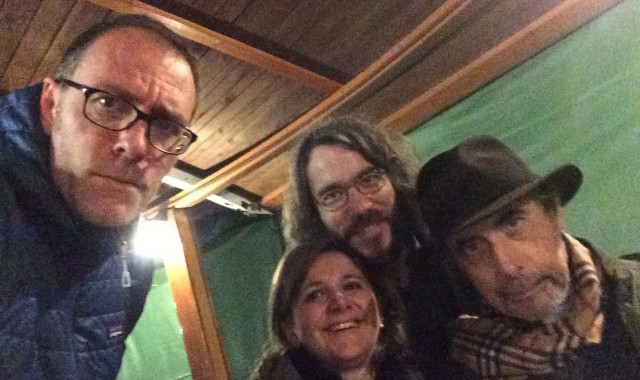When I first contacted screenwriter Francesca Serafini for an interview, I had no idea the incredible day I would have translating her words. Not only did I appreciate the information in her responses to my questions, but I also appreciated her poetic way of writing them. She has her craft down to a science. It turns out that in college, Francesca majored in the History of the Italian Language. Upon graduation, she began her career writing books and then in 2003 shifted her focus to screenwriting. Since then, she has worked in both film and television. Her latest project, “Non essere cattivo” has brought an international spotlight on her talent, and this week, it will be shown at the Los Angeles-Italia festival.
Directed by Claudio Caligari whose work was strongly influenced by Pier Paolo Pasolini. “Non essere cattivo” (Don’t Be Bad) has echoes of “Accattone” and Pasolini’s literary works. Serafini along with her collaborators Giordano Meacham and Caligari delve deeply into the bond of friendship between their characters Cesare and Vittorio. The outcome of is an emotional story, which explores a dark road too often traveled by young people whose lives lack the culture and guidance needed to stay on the right track.
Serafini talked with me about the bond of friendship between her protagonists, her method of character development and the direction of contemporary Italian cinema.
Fra Noi: How did this story come about?
Francesca Serafini: The story comes from Claudio Caligari’s curiosity to investigate humanity on the edge, like the Roman town in the film, which is not that different from the suburbs of any major city in the world. To quote a line from Pasolini, Caligari moved into that particular hell “with a strong desire to understand it.” And, then he came to love it. The story was built on ideas drawn from reality, a cinematic story and then by mixing arthouse films with pop-culture.
FN: “Non essere cattivo” is becoming very poplular worldwide. What qualities make this story so universal?
FS: I think what makes this movie an emotional story regardless of location is the extraordinary story of friendship between the two protagonists Cesare and Vittorio. In Italian, we call them “brothers for life” because their friendship is a declaration of love. We were also inspired by a book published by Pasolini called “Ragazzi di vita” (Boys of Life). In fact, Vittorio’s name was inspired by Pasolini’s character, Accattone. Cesare and Vittorio are a little like De Niro and Keitel in Scorsese’s “Mean Streets” which was also a cornerstone for Claudio Caligari, just like Pasolini.
FN: Can you describe your process of developing these characters?
FS: Claudio Caligari presented these characters Cesare and Vittoria and their story of friendship to me and Giordano Meacham, another screenwriter that worked with us. From there, we found the common ground in wanting to tell this story that began in Italy in 1995 and led up to the present day. These two characters demonstrate how easy it is to make mistakes along the way and to fall into bad situations just trying to make money and to get by. Without culture and opportunity, selling drugs becomes the quickest way “to turn” (bad) as we say in Italy. In the end, they try to turn their lives around because they are moved by the love that holds them together and also to their women, who play very important roles in the film. But unfortunately, love isn’t always enough to save you.
FN: From what I understand about this film- together with other recent releases, there seems to be a new emerging theme, and perhaps a new direction for Italian cinema.
FS: I don’t know if this film could represent a new direction in Italian cinema, because there are already several directions in place by Paolo Sorrentino, who is very loved by me, Giordano Meacci and also Caligari. Instead, I believe that it represents, along with works also by Garrone and Sorrentino (the two best-known examples in America), the testimony of a certain vitality of our film, and I hope that this will encourage more quality cinema in the future.
FN: What are your fears and emotions in knowing that the film will be presented in Los Angeles?
FS: The only fear I have is that the film will not be seen. Then what happens, happens.. The very idea that this film could be seen outside of Italy, and in a place so important to cinema is very exciting.
“Don’t Be Bad” will be shown on Saturday, February 27. Check here for the compete schedule. http://www.losangelesitalia.com/en/official-program-2016.html
Check out Serafini’s latest book “Di calcio non si parla” in which she writes about three of her passions- soccer, cinema and literature. Click here to purchase it on Amazon.
http://www.amazon.com/s/ref=nb_sb_noss?url=search-alias%3Daps&field-keywords=di+calcio+non+si+parla
 Fra Noi Embrace Your Inner Italian
Fra Noi Embrace Your Inner Italian







